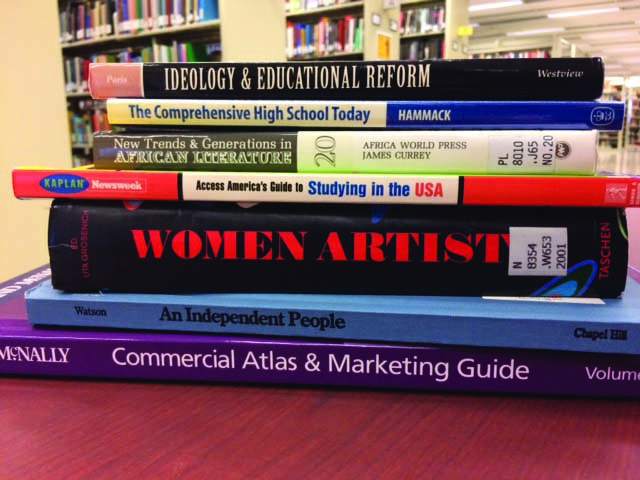Rod Library pursues textbook affordability for all
As part of their textbook equity initiative Rod is encouraging faculty to write textbooks to use for certain classes.
Oct 28, 2021
Initiative aims to make class materials and textbooks accessible and affordable for UNI students
College students have long struggled with the expensive cost of textbooks for classes, with some students having to shell out hundreds of dollars each semester.
The textbook affordability movement at UNI began more than five years ago and aims to make textbooks and class material more affordable for students. This initiative allows access to Open Educational Resources (OERs) that teachers and students can use in their courses. These materials are freely available to use, adapt, share and reuse.
This year Rod Library was a recipient (in collaboration with the University of Iowa Libraries and Iowa State University Parks Library) of a $219,000 grant through the CARES Act and Iowa Department of Education. The money is being invested in training faculty teams at the three Regents institutions to create free, openly licensed course materials. Anne Marie H. Gruber, Ph.D., is the librarian leading this work campus-wide.
Currently UNI faculty members working in the grant program are writing new textbooks for at least 15 popular UNI courses. These new textbooks cover topics in communication for college, career, civic life, methods of teaching early literacy, elementary science methods, elementary Spanish and music theory.
The expected savings for students is likely to be $300,000 per year once the textbooks are complete and implemented in courses. Some colleges are more involved than others, so students in some programs benefit from open textbooks, but others do not. In the past few semesters courses in the College of Humanities, Arts & Sciences have accounted for 75-95% of the estimated student cost savings.
Significant progress is being made in pursuing textbook equity, however the road to textbook affordability for all students is long. Although UNI is committed to supporting free open educational resources, there are no regulations specific to affordability. Faculty have the academic freedom to select the materials for their courses. Rod’s initiative for textbook affordability aims to inform faculty about issues related to textbook equity and about the more than 950 free openly licensed textbooks available. As an additional incentive, faculty and students receive support to create and license their materials.
Gruber explains that in this initiative “faculty, staff and students who create course materials that they choose to openly license will not receive royalties like they would if publishing with a traditional publisher. This is one of the reasons why incentivizing faculty for creating materials is important.”
Gruber hopes continuing the textbook affordability initiative at UNI will make a difference. The price of textbooks increased 88% from 2006 to 2016. Some students skip meals to afford textbooks. Others avoid purchasing a required book having an impact on their grades. Some students change course schedules, drop courses or avoid particular courses due to textbooks costs.
Students can contribute to this initiative by talking to your faculty about the importance of affordable classroom materials. Students can also check the list of the OERs available and encourage faculty to use these free resources in classes. Librarians at Rod can help students to find additional resources.








